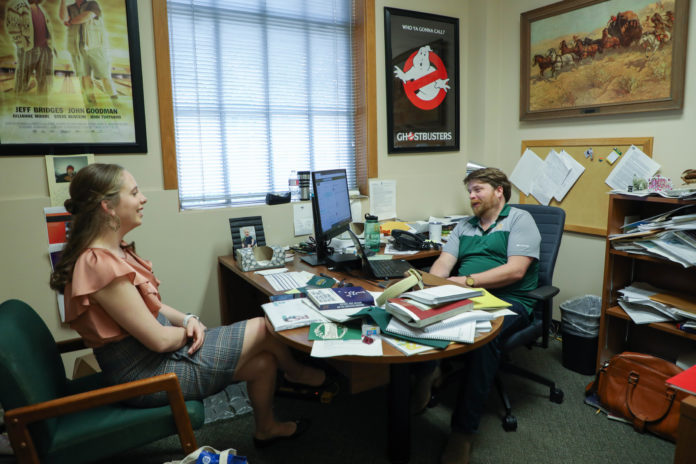
By Matthew Soderberg | Sports Writer
Baylor Interdisciplinary Core professor Dr. Sam Perry and Dr. Thomas Kidd, the Vardaman Distinguished Professor of History and Associate Director for the Institute for Studies of Religion, recently wrote books on the Evangelist movement and how it interacts with American politics.
Kidd said when evangelicals are mentioned in polls or on the news, it’s not representative of the entire body of “born again” Christians.
“When evangelicals are discussed in the media, you’re talking not about evangelicals generally, but about white Republican, self-identified evangelicals in polling,” Kidd said. “I mean, that’s a perspective, but that’s not, that’s certainly not the whole of evangelicals in America. I think the politicized view of evangelicals that we get in the media is not necessarily wrong, but it’s highly incomplete.”
Perry said while investigating for the book he was initially looking into reactions to the Obama presidency, but he eventually worked his way into the Christian Right. He said that he was astounded by where the investigation took him.
“Looking at the way that the information circulation was happening and the types of audiences that were being courted with this information just became a really interesting project for me,” Perry said. “Trying to figure out what they were arguing about and why seemingly unbelievable claims were readily believed by large groups of people.”
He also said he found a website that surprised him by what they were selling.
“WND, basically the entire website was devoted to conspiracy theories about Obama,” Perry said. “I started looking at what it was they were selling through the website and a lot of it was, of course, conspiracy theory books … but the other thing they were selling most often was, like, Christian self-help books.”
Perry said the connection was definitely not what he was expecting, and that only drove him more into his research for the book.
Kidd said not all the people in the Moral Majority, though, were die-hard supporters of President Trump. That the division within the evangelical community was something felt harshly by those who support it.
“Some of those people thought if the Democrats would give us, you know, any kind of options, especially someone who’s at least moderate on pro-life issues, we would vote for them,” Kidd said. “But that’s not going to come out of the current Democratic Party, so these people feel like they’re in a bind.”
It’s not as if everyone in the focus group is a white Republican, but that notion started somewhere. Kidd said the genesis came from Billy Graham’s support of President Eisenhower in the ‘50s and Perry said the association became concrete in the ‘80s.
“When we get to the Reagan administration, you have folks who’d previously argued against presidential candidates on the basis of church and state, [are] saying that the separation of the church and state is the infidel,” Perry said. “So I think there’s a lot more visibility, I think, with sort of prominent religious figures on the right and prominent politicians on the right maybe than there are in some other circles.”
The division within the group is widening, and Kidd is concerned there is isn’t a solution. He said the polarization of the country is warping even the religious sphere, something most people don’t acknowledge.
“There’s a lot of anxiety, I think, among a lot of evangelicals who are aware that white and black evangelicals, in particular, have ostensibly the same spiritual and theological commitments and often go to the same churches, but they are completely polar opposite on political issues,” Kidd said. “So, the polarization is a problem for the evangelical community at large.”





